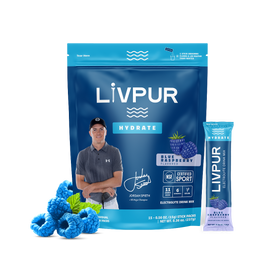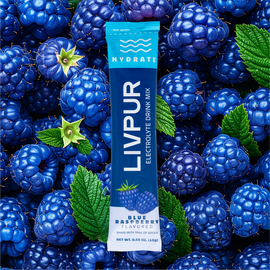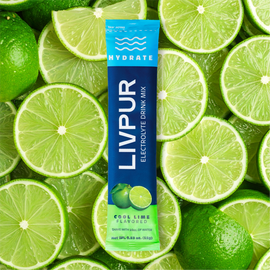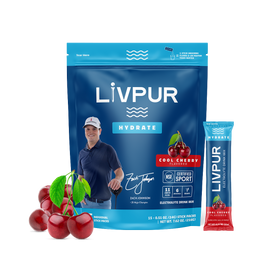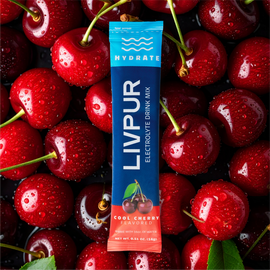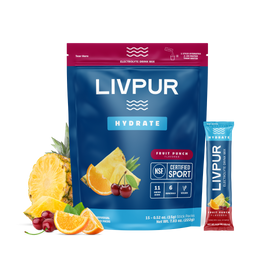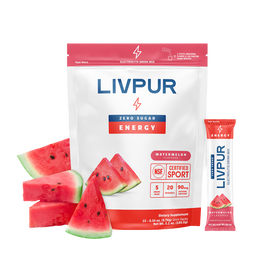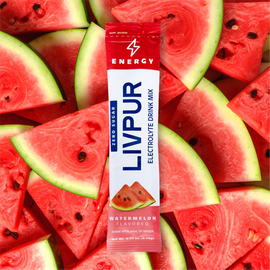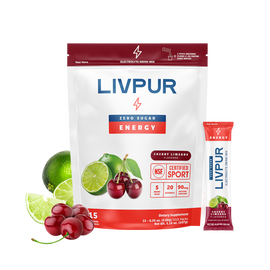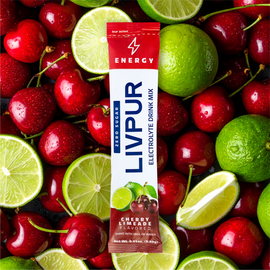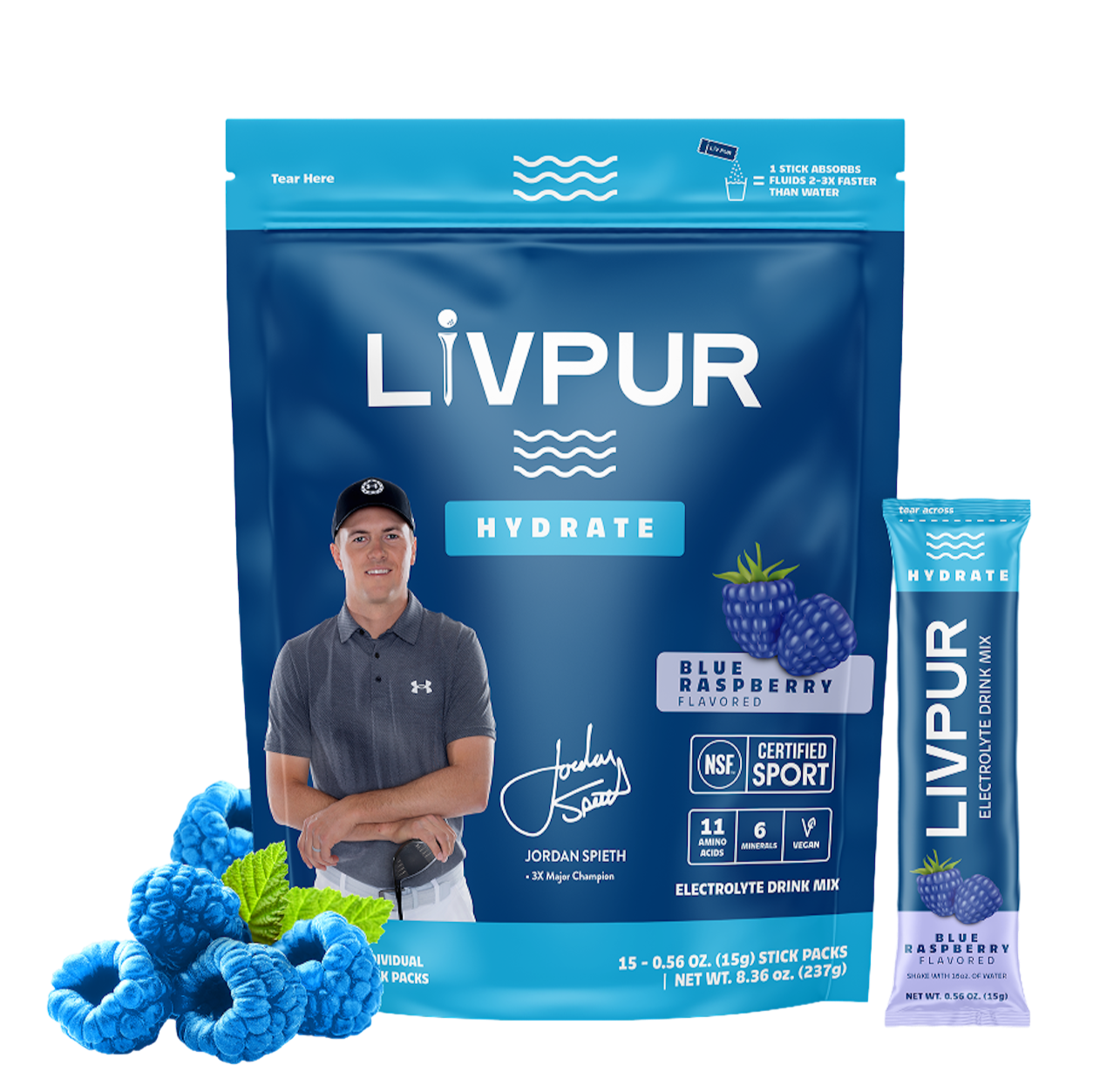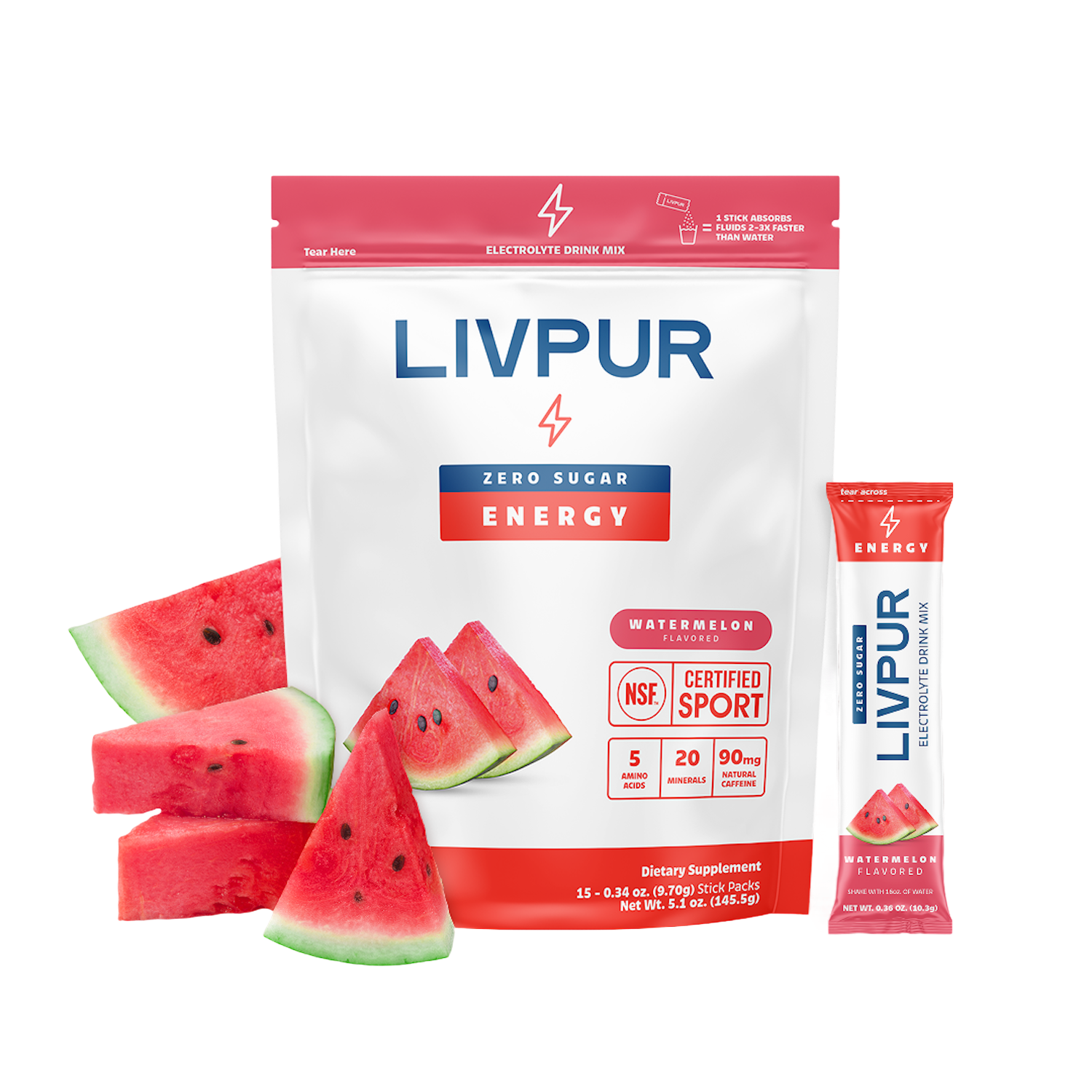August 26, 2025 • By Katie Switow • Blog
Dehydration And Stress Connection: Can Stress Cause Dehydration?

Stress and hydration have more in common than you might think, but it is not just about forgetting to drink enough water when life gets hectic. It is also about what stress does to your body behind the scenes.
Picture this. You start the morning with a coffee, rush into your day, skip a mid-morning water break, and by noon, you have a headache that feels like it came out of nowhere. You might chalk it up to stress, and you would be right, but dehydration could be part of the problem, too. The two often show up together.
When your body feels stressed, it releases hormones like cortisol. Those stress hormones change how your kidneys handle water. Sometimes you hold onto it, other times you flush it out faster than normal. If that happens often enough, you can end up dehydrated without realizing it.
We have all had those days. Let’s look at why they happen and how to keep them from throwing you off balance.
How Stress Impacts Hydration
Stress is not just a mental weight. It has real, physical effects, including the way your body stores and uses water.
Cortisol And Fluid Loss
Cortisol is part of the body’s built-in stress response. In short bursts, it is useful. It speeds up your heart rate, shifts blood flow, and gets you ready to react. But there is a trade-off. Those same changes can throw off your fluid balance.
Chronic Stress And Your Blood Pressure
When stress sticks around, it demands more from your system. Your body burns through energy faster, and with that comes a higher need for fluids to keep physiological processes running smoothly. If you do not adjust your water intake, mild dehydration can creep in, and it can show up in ways you might not expect.
One of these ways is through an increased risk of high blood pressure, a potentially threatening condition if it becomes a chronic issue (like during long periods of high stress levels).
Signs You Might Be Dehydrated From Stress

Stress and dehydration share a lot of the same symptoms. That is part of what makes them so easy to confuse.
Physical Symptoms
If you have ever felt drained by midday without a clear reason, dehydration could be behind it. The truth is, drinking water isn't enough to stay hydrated. Your body also needs trace minerals to properly hydrate your cells.
Other physical signals include fatigue, muscle tightness, headaches, and an increased heart rate. When stress is already making your body work harder, a lack of fluids can amplify those symptoms.
Depression And Anxiety
Your brain depends on proper hydration to function properly. Even mild dehydration can make it harder to think clearly or remember details. You might also notice shifts in mood or feel anxious more often, because dehydration increases your blood pressure.
Chronic depression, a very serious condition, is also worsened by dehydration, as both issues negatively affect your mood.
These conditions both peak when stress is high, and dehydration can magnify their psychological impact. Spotting the overlap is the first step in breaking the vicious cycle between your mental health and dehydration.
Staying Hydrated Under Stress

Hydration is one of the easiest ways to help your body cope with stress, but it is also one of the first habits to slip.
Daily Habits
Sipping water throughout the day is better than downing a glass only when you feel thirsty. Keep a water bottle within reach and aim for steady water consumption from morning to night. Pale yellow urine is usually a sign that you are drinking enough fluids.
Hydrating Foods and Drinks
You can get water from more than just plain water. Juicy fruits like watermelon and oranges, along with vegetables like cucumbers and celery, are hydrating foods that also give you vitamins and minerals. For more ideas, you can explore our guide to Finding Balance with Electrolytes and our guide to Athlete Hydration Tips.
Of course, hydration is only half the story. Managing stress is just as important for your overall health.
Managing Stress To Support Your Cognitive Function
When you lower your stress levels by decreasing cortisol, you make it easier for your body to stay hydrated. It works both ways, improving cognitive function as well, since hydration can also help regulate your mood and attention.
Relaxation Techniques
Quick breaks make a difference. Try deep breathing, progressive muscle relaxation, or mindfulness for a few minutes at a time. These approaches help reduce cortisol levels, which in turn supports fluid balance.
Lifestyle Choices
Sleep, diet, and connection matter more than most people realize. Enough sleep keeps your stress hormone levels steadier. A healthy diet with plenty of whole foods supports your body’s needs. And having social support, even a quick chat with a friend, can lower stress and improve well-being.
When you make these part of your routine, you are less likely to get caught in that vicious cycle where stress drains your energy and dehydration keeps you feeling worse.
LivPur Hydration Solutions
Sometimes the right tools make it easier to stick with good habits. Our hydration products are designed for busy, active lives, the kind where stress can sneak in and throw things off track.
LivPur Hydrate
There are days when plain water is not enough. Our Hydrate formula combines electrolytes, amino acids, vitamins, and a small amount of glucose to help your body absorb fluids quickly. It is a simple way to help restore hydration when stress and activity leave you running low. You can learn more from our guide to Everything You Need to Know About Dehydration.
LivPur Energize
If you rely on caffeine during busy days, remember it can increase your risk of becoming dehydrated. Our LivPur Energize formula includes ingredients that help minimize this effect. It is not meant to replace water or our Hydrate formula, but it can be a smart choice when you need an energy lift without making hydration harder to maintain.
Bringing Stress And Hydration Into Balance
Stress and dehydration often work hand in hand. The more stressed you are, the more likely you are to lose fluids, and the more dehydrated you become, the harder it is to cope with stress.
The good news is that small daily actions can break the cycle. Manage stress with rest, movement, and mindful breaks. Keep water and hydrating foods in your routine. And when you need extra support, Hydrate by LivPur can help you recover faster.
We are all busy, but with the right habits and a little support, your body can handle more and bounce back quicker. That means better focus, steadier mood, and improved overall health, no matter what the day throws your way.
